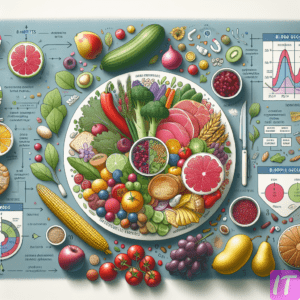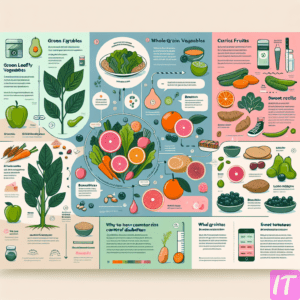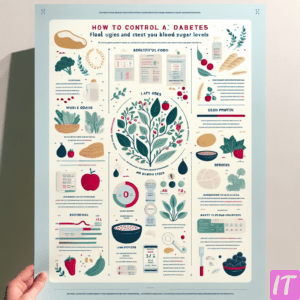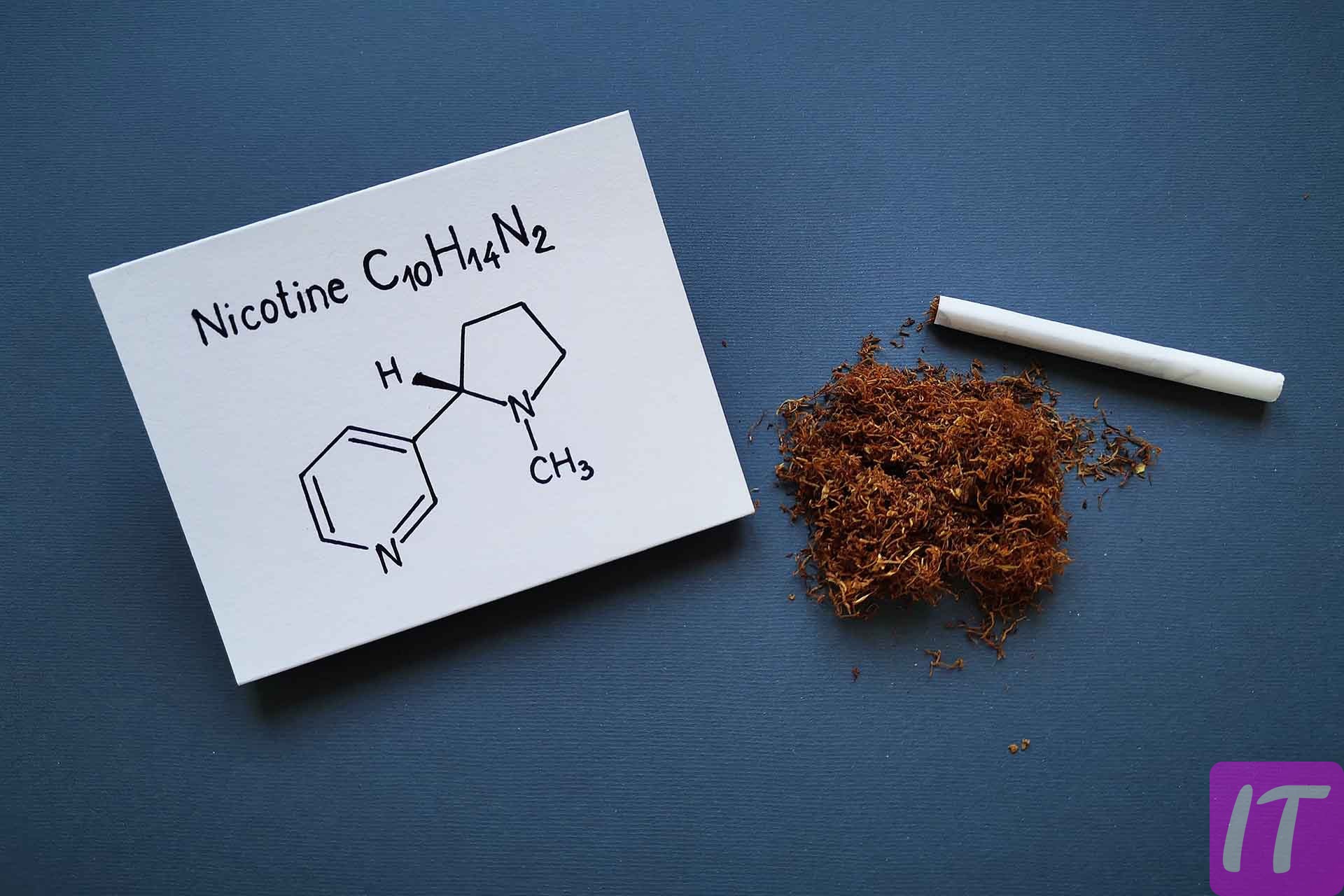How to Control Your Diabetes with These Foods?
Diabetes is a chronic condition that affects millions of people worldwide. Managing diabetes effectively requires a multifaceted approach, with diet playing a crucial role. In this comprehensive guide, we will explore various foods and dietary strategies that can help you control your diabetes. By understanding how different foods impact your blood sugar levels, you can make informed choices to maintain your health and well-being.
Understanding the Role of Diet in Diabetes Management
Diet is a cornerstone of diabetes management. The foods you consume directly influence your blood sugar levels, which is critical for individuals with diabetes. A well-balanced diet can help maintain stable blood sugar levels, reduce the risk of complications, and improve overall health. By focusing on nutrient-dense foods and avoiding those that cause rapid spikes in blood sugar, you can better manage your condition.
A diet rich in whole foods, such as vegetables, fruits, lean proteins, whole grains, and healthy fats, provides essential nutrients and helps regulate blood sugar levels. Additionally, understanding portion control and meal timing can further enhance your ability to manage diabetes effectively.
The Impact of Carbohydrates on Blood Sugar Levels
Carbohydrates are the primary source of energy for the body, but they have a significant impact on blood sugar levels. When consumed, carbohydrates are broken down into glucose, which enters the bloodstream and raises blood sugar levels. For individuals with diabetes, managing carbohydrate intake is essential to prevent hyperglycemia (high blood sugar).
Not all carbohydrates are created equal. Simple carbohydrates, such as those found in sugary foods and refined grains, cause rapid spikes in blood sugar. In contrast, complex carbohydrates, found in whole grains and vegetables, are digested more slowly, leading to gradual increases in blood sugar. By choosing complex carbohydrates and monitoring portion sizes, you can better control your blood sugar levels.
Incorporating Fiber-Rich Foods for Better Glycemic Control
Fiber is a type of carbohydrate that the body cannot digest, and it plays a vital role in diabetes management. There are two types of fiber: soluble and insoluble. Soluble fiber dissolves in water and forms a gel-like substance, which can help slow the absorption of sugar and improve blood sugar control. Insoluble fiber adds bulk to the stool and aids in digestion.
Foods rich in fiber include vegetables, fruits, whole grains, legumes, nuts, and seeds. Incorporating these foods into your diet can help stabilize blood sugar levels, improve cholesterol levels, and promote digestive health. Aim for a daily intake of at least 25-30 grams of fiber to reap these benefits.
The Benefits of Whole Grains in a Diabetic Diet
Whole grains are an essential component of a diabetic-friendly diet. Unlike refined grains, whole grains contain all parts of the grain, including the bran, germ, and endosperm. This means they retain more nutrients and fiber, which can help regulate blood sugar levels.
Examples of whole grains include brown rice, quinoa, oats, barley, and whole wheat. These grains have a lower glycemic index (GI) compared to refined grains, meaning they cause a slower, more gradual rise in blood sugar levels. Incorporating whole grains into your meals can provide sustained energy and improve overall glycemic control.

How Lean Proteins Help Stabilize Blood Sugar
Protein is an essential macronutrient that helps build and repair tissues, produce enzymes and hormones, and support overall health. For individuals with diabetes, lean proteins can help stabilize blood sugar levels by slowing the absorption of carbohydrates and reducing post-meal blood sugar spikes.
Lean protein sources include poultry, fish, tofu, legumes, low-fat dairy, and lean cuts of meat. Incorporating these proteins into your meals can help you feel fuller for longer, reduce cravings, and maintain stable blood sugar levels. Aim to include a source of lean protein in each meal to support diabetes management.
The Role of Healthy Fats in Diabetes Management
Healthy fats are an important part of a balanced diet and can play a role in diabetes management. Unlike saturated and trans fats, which can increase the risk of heart disease, healthy fats can improve heart health and help regulate blood sugar levels.
Sources of healthy fats include avocados, nuts, seeds, olive oil, and fatty fish such as salmon and mackerel. These fats can help reduce inflammation, improve cholesterol levels, and provide a steady source of energy. Incorporating healthy fats into your diet can support overall health and aid in diabetes management.
Low-Glycemic Index Foods and Their Effect on Blood Sugar
The glycemic index (GI) is a measure of how quickly a food raises blood sugar levels. Low-GI foods cause a slower, more gradual increase in blood sugar, making them ideal for individuals with diabetes. By choosing low-GI foods, you can better manage your blood sugar levels and reduce the risk of hyperglycemia.
Examples of low-GI foods include non-starchy vegetables, legumes, whole grains, nuts, and some fruits. Incorporating these foods into your diet can help maintain stable blood sugar levels and provide sustained energy throughout the day. Aim to include a variety of low-GI foods in your meals to support diabetes management.
The Importance of Portion Control in Diabetes
Portion control is a critical aspect of diabetes management. Consuming large portions of food, particularly those high in carbohydrates, can lead to rapid spikes in blood sugar levels. By controlling portion sizes, you can better manage your blood sugar and reduce the risk of complications.
Using smaller plates, measuring portions, and being mindful of serving sizes can help you practice portion control. Additionally, paying attention to hunger and fullness cues can prevent overeating. By managing portion sizes, you can maintain stable blood sugar levels and support overall health.
Choosing the Right Fruits for Diabetes Control
Fruits are a valuable source of vitamins, minerals, and fiber, but they also contain natural sugars that can impact blood sugar levels. Choosing the right fruits and monitoring portion sizes can help you enjoy the benefits of fruit while managing your blood sugar.
Low-GI fruits, such as berries, cherries, apples, and pears, are better choices for individuals with diabetes. These fruits cause a slower rise in blood sugar levels compared to high-GI fruits like watermelon and pineapple. Incorporating a variety of low-GI fruits into your diet can provide essential nutrients and support glycemic control.
Vegetables That Support Blood Sugar Regulation
Vegetables are an essential part of a healthy diet and can play a significant role in blood sugar regulation. Non-starchy vegetables, in particular, are low in carbohydrates and calories, making them ideal for individuals with diabetes.
Examples of non-starchy vegetables include leafy greens, broccoli, cauliflower, peppers, and cucumbers. These vegetables are rich in vitamins, minerals, and fiber, which can help improve blood sugar control and overall health. Aim to fill half of your plate with non-starchy vegetables at each meal to support diabetes management.
The Influence of Dairy Products on Diabetes
Dairy products can be a valuable source of calcium, vitamin D, and protein, but they can also contain carbohydrates that impact blood sugar levels. Choosing low-fat or fat-free dairy options and monitoring portion sizes can help you enjoy the benefits of dairy while managing your blood sugar.
Examples of low-fat dairy products include skim milk, low-fat yogurt, and reduced-fat cheese. These options provide essential nutrients without excessive saturated fat and calories. Incorporating low-fat dairy into your diet can support bone health and provide a source of protein for blood sugar stabilization.

How Nuts and Seeds Can Improve Blood Sugar Levels
Nuts and seeds are nutrient-dense foods that can provide numerous health benefits, including improved blood sugar control. They are rich in healthy fats, protein, and fiber, which can help stabilize blood sugar levels and reduce the risk of heart disease.
Examples of nuts and seeds include almonds, walnuts, chia seeds, flaxseeds, and pumpkin seeds. These foods can be easily incorporated into meals and snacks to provide sustained energy and support glycemic control. Aim to include a small handful of nuts or seeds in your daily diet to reap their benefits.
The Benefits of Legumes for Diabetic Patients
Legumes, such as beans, lentils, and chickpeas, are an excellent source of plant-based protein, fiber, and complex carbohydrates. They have a low glycemic index, meaning they cause a slower rise in blood sugar levels, making them ideal for individuals with diabetes.
Incorporating legumes into your diet can help improve blood sugar control, reduce cholesterol levels, and promote digestive health. They can be used in a variety of dishes, including soups, salads, and stews, to provide a nutritious and satisfying meal. Aim to include legumes in your diet several times a week to support diabetes management.
Hydration and Its Importance in Managing Diabetes
Staying hydrated is essential for overall health and can play a role in diabetes management. Dehydration can lead to elevated blood sugar levels and increase the risk of complications. Drinking enough water helps maintain proper kidney function and supports the body’s ability to regulate blood sugar.
Aim to drink at least eight glasses of water a day, and more if you are physically active or in hot weather. Avoid sugary beverages, such as soda and fruit juice, as they can cause rapid spikes in blood sugar levels. Staying hydrated with water, herbal tea, and other non-caloric beverages can support overall health and diabetes management.
Spices and Herbs That Help Control Blood Sugar
Certain spices and herbs have been shown to have beneficial effects on blood sugar levels. Incorporating these natural ingredients into your diet can enhance flavor and provide potential health benefits.
Examples of blood sugar-friendly spices and herbs include cinnamon, turmeric, ginger, fenugreek, and garlic. These ingredients can help improve insulin sensitivity, reduce inflammation, and support overall glycemic control. Experiment with adding these spices and herbs to your meals to enhance flavor and support diabetes management.
The Role of Probiotics in Diabetes Management
Probiotics are beneficial bacteria that support gut health and have been linked to improved blood sugar control. A healthy gut microbiome can influence insulin sensitivity and reduce inflammation, which are important factors in diabetes management.
Probiotic-rich foods include yogurt, kefir, sauerkraut, kimchi, and other fermented foods. Incorporating these foods into your diet can support digestive health and potentially improve blood sugar levels. Consider adding a serving of probiotic-rich foods to your daily diet to support overall health and diabetes management.
How to Use Meal Planning to Manage Diabetes
Meal planning is a powerful tool for managing diabetes. By planning your meals in advance, you can ensure that you are consuming balanced, nutrient-dense foods that support glycemic control.
Start by creating a weekly meal plan that includes a variety of vegetables, fruits, lean proteins, whole grains, and healthy fats. Be mindful of portion sizes and aim to include low-GI foods in each meal. Preparing meals and snacks in advance can help you stay on track and avoid unhealthy food choices. Consistent meal planning can lead to better blood sugar control and overall health.
The Impact of Alcohol on Blood Sugar Levels
Alcohol can have a significant impact on blood sugar levels and should be consumed with caution by individuals with diabetes. Drinking alcohol can cause blood sugar levels to fluctuate, leading to hypoglycemia (low blood sugar) or hyperglycemia, depending on the type and amount of alcohol consumed.
If you choose to drink alcohol, do so in moderation and always with food to help stabilize blood sugar levels. Be aware of the carbohydrate content in alcoholic beverages and monitor your blood sugar levels closely. Consulting with your healthcare provider can help you understand how alcohol affects your diabetes and create a plan for safe consumption.
Understanding Sugar Substitutes and Their Effects
Sugar substitutes, also known as artificial sweeteners, can provide a way to enjoy sweet flavors without the impact on blood sugar levels. However, not all sugar substitutes are created equal, and some may have potential side effects.
Common sugar substitutes include aspartame, sucralose, stevia, and erythritol. These sweeteners vary in their sweetness and potential health effects. While they can be a useful tool for reducing sugar intake, it’s important to use them in moderation and be aware of any individual sensitivities. Consulting with a healthcare provider can help you determine which sugar substitutes are best for your diabetes management plan.

Balancing Macronutrients for Optimal Diabetes Control
Balancing macronutrients—carbohydrates, proteins, and fats—is essential for optimal diabetes control. Each macronutrient plays a unique role in the body and can impact blood sugar levels differently.
A balanced meal should include a combination of complex carbohydrates, lean proteins, and healthy fats. This combination can help stabilize blood sugar levels, provide sustained energy, and support overall health. Working with a registered dietitian or healthcare provider can help you create a personalized meal plan that balances macronutrients and supports your diabetes management goals.
Managing diabetes through diet requires a comprehensive understanding of how different foods and nutrients impact blood sugar levels. By incorporating fiber-rich foods, whole grains, lean proteins, healthy fats, and low-GI foods into your diet, you can better control your blood sugar levels and improve overall health. Additionally, staying hydrated, practicing portion control, and using meal planning strategies can further support your diabetes management efforts. Always consult with your healthcare provider or a registered dietitian to create a personalized plan that meets your individual needs and goals.







